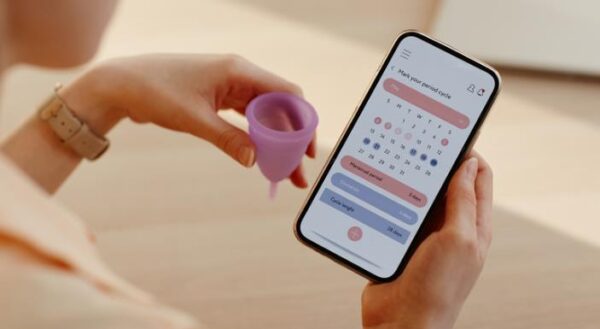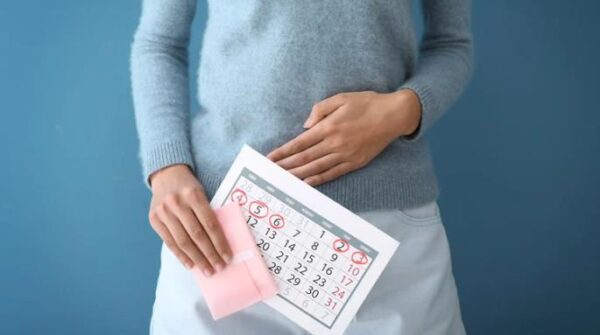Do you want to know when it is best to have sex after your period? There is nowhere else to look! Are you wondering how long it takes to become pregnant after your period? Not to worry! We will explore the variables that affect how long you should wait to have sex after your period in this article. Prepare yourself to discover all the information required to improve your sexual pleasure and health and to make wise judgments. Now let us get going!
Understanding Your Menstrual Cycle
Before discussing the specifics of waiting after your period, it’s important to understand the basics of your menstrual cycle. On average, a woman’s menstrual cycle lasts between 28 and 32 days, with day one being the first day of menstruation. The menstrual phase usually lasts 3 to 7 days and marks the shedding of the uterine lining.
Afterward, during ovulation (usually around day 14), an egg is released from the ovaries into the fallopian tube where it can potentially be fertilized by sperm if intercourse occurs. If fertilization does not occur, hormonal changes signal for menstruation to begin again.
Factors That Influence How Long You Should Wait

One primary factor that influences how long you should wait after your period is birth control methods. If you are using hormonal birth control pills or other forms such as IUDs or implants, then ovulation does not occur and therefore, there is no need to wait after your period ends.
Additionally, some women may experience discomfort or pain during sex due to residual cramping from their periods. In such cases, it might be best to wait until any discomfort has subsided before engaging in sexual activity again.
Another factor that may influence how long you should wait is the risk of pregnancy. If you are actively trying to conceive, then it may be beneficial to have sex immediately after your period ends as sperm can survive in the female reproductive tract for up to 5 days.
The menstrual cycle and its phases
The menstrual cycle is a natural, physiological process that occurs in women of reproductive age. It involves the monthly release of an egg from the ovaries and the shedding of the uterine lining if pregnancy does not occur. This cycle typically lasts between 28 to 32 days, although it can vary from person to person.
The menstrual cycle is divided into four phases: menstruation, follicular phase, ovulation, and luteal phase. Each phase has its unique characteristics and plays a crucial role in fertility.
1. Menstruation
The first day of bleeding marks the start of menstruation and the beginning of a new cycle. During this time, the uterus sheds its lining through the vagina in response to low levels of estrogen and progesterone hormones. The average duration of menstruation is around 3 to 7 days, but it can vary for different individuals.
2. Follicular Phase

This phase starts on the first day of bleeding and lasts until ovulation occurs. The pituitary gland releases follicle-stimulating hormone (FSH) which stimulates one or more eggs in the ovaries to mature within fluid-filled sacs called follicles. These follicles produce estrogen, which thickens the uterine lining in preparation for pregnancy.
3. Ovulation
Around day 14 (in a typical 28-day cycle), an increase in luteinizing hormone (LH) triggers ovulation – when an egg is released from one of the mature follicles into the fallopian tube ready for fertilization by sperm.
4. Luteal Phase
After ovulation, LH transforms one of the ruptured follicles into a structure called corpus luteum, which secretes progesterone hormone along with some estrogen to keep building up and maintaining the uterine lining for potential implantation should fertilization occur.
If fertilization doesn’t happen during the luteal phase, progesterone levels drop, leading to the shedding of the uterine lining and the start of a new cycle.
How long should you wait to have sex after your period?
There isn’t a one-size-fits-all answer to this question, as it varies depending on individual circumstances and preferences. In general, it’s safe to have sex at any time during or after your period, as long as both partners are comfortable and there are no medical concerns. Some people prefer to wait until their period has ended to avoid any potential mess, while others may feel more comfortable having sex during their period.
Factors such as menstrual flow, personal hygiene preferences, and cultural or religious beliefs may also influence when someone chooses to engage in sexual activity after their period. It’s essential to communicate openly with your partner about your preferences and any concerns you may have.

From a medical standpoint, there are no specific restrictions on when you can have sex after your period. However, if you have any underlying health conditions or concerns, it’s always a good idea to consult a healthcare provider for personalized advice. Additionally, using protection, such as condoms, can help prevent sexually transmitted infections (STIs) and unintended pregnancy, regardless of when you choose to have sex.
Factors to consider before having sex after your period
When it comes to having sex after your period, there are a few important factors to consider before jumping back into the bedroom. While every person’s body and preferences are unique, some general guidelines can help you determine when it’s safe and comfortable for you to engage in sexual activity after menstruation.
- Recovery Time
It’s important to give your body time to recover from the physical stress of menstruation before engaging in sexual activity. This is especially true if you experience heavy or painful periods, as this can cause fatigue and discomfort in the days following your period. Additionally, if you use tampons or menstrual cups during your period, make sure to remove them completely before attempting intercourse.
- Birth Control Method
If you’re using a hormonal birth control method such as a pill or an IUD, it’s important to understand how these methods may affect your cycle and when it’s safe to have sex without risking pregnancy. For example, some types of birth control pills require a week of active pills before they are effective again after a break for menstruation. Talk to your healthcare provider about any concerns or questions related to your specific birth control method.
- Sexual Preferences
Your personal preferences should also play a role in determining when it feels right for you to have sex after your period ends. Some people may feel more aroused and ready for sexual activity immediately following their period, while others may need more time for their bodies and minds to adjust before feeling comfortable with intimacy.
- Protection Against STIs
While STIs (sexually transmitted infections) can be transmitted at any point during the menstrual cycle, the risk may be slightly higher immediately following menstruation due to changes in pH levels and bacteria present in the vagina during this time. If you or your partner have multiple sexual partners or suspect potential exposure to STIs, make sure proper protection is used during intercourse.
- Communication with Your Partner

It’s crucial to have open and honest communication with your partner about when it feels right for both of you to engage in sexual activity after menstruation. Understanding each other’s needs, boundaries, and preferences can help create a more enjoyable and comfortable experience for both parties.
FAQs
Can I get pregnant right after my period?
Getting pregnant immediately after your period ends is possible, although it is less likely. Sperm can survive in the body for up to five days, so if you have sex towards the end of your period and ovulate early, there is a chance of pregnancy.
How do I know when I am ovulating?
Ovulation occurs around 14 days before your next period starts. You can track your menstrual cycle and use an ovulation predictor kit to determine when you are most likely to be fertile.
Is it safe to have unprotected sex during my fertile window?
No, having unprotected sex during your fertile window increases the risk of pregnancy. If you are not trying to conceive, it is important to use contraception or avoid intercourse altogether during this time.
Can I still get pregnant if I have irregular periods?
Yes, women with irregular periods can still get pregnant. It may be more difficult to predict when you are ovulating, but there is always a chance of pregnancy if sperm meets an egg.
What about sexually transmitted infections (STIs)?
It is important to remember that STIs can be transmitted at any time during sexual activity, not just during menstruation or ovulation. Using protection such as condoms can reduce the risk of STI transmission.
Is it normal for my libido to change throughout my cycle?
Absolutely! Hormonal fluctuations throughout the menstrual cycle can affect libido differently for each person. Some may experience increased desire while others may feel a decrease in libido during certain phases.
Can having sex during my period make it last longer?
No, having sex does not affect the length of your period. The duration of your period is determined by hormonal changes and shedding of the uterine lining.
What if I have cramps or discomfort during my fertile window?
Listening to your body and communicating with your partner is important. If you experience pain or discomfort during intercourse, take a break or try different positions. If the pain persists, consult with a healthcare provider.
